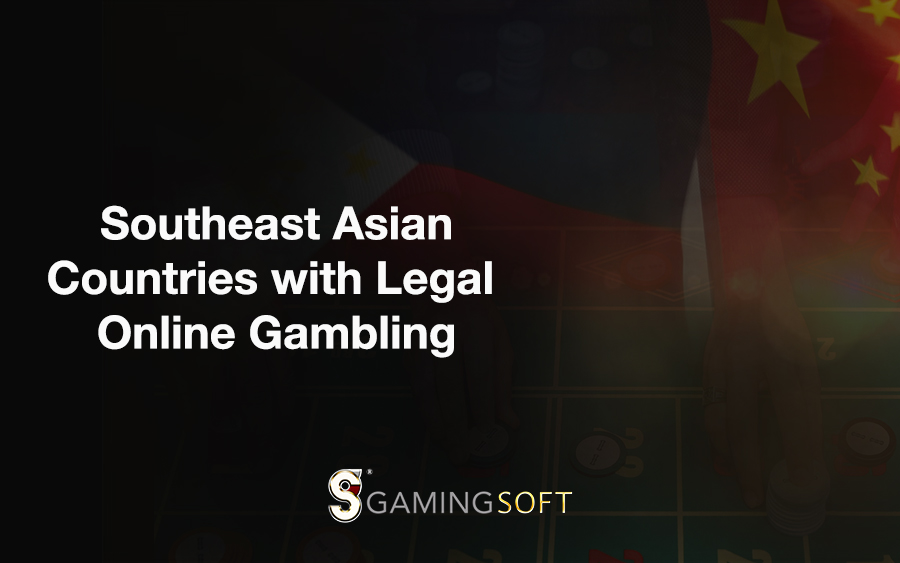Southeast Asia has emerged as a hotbed for economic growth and tourism, making it a region of significant interest to the gambling industry. However, the legality of gambling and licensing policies vary widely across countries. From stringent prohibitions to highly regulated systems, these differences impact the strategies gambling operators can adopt to thrive in the region.
1. Philippines: A Shifting Landscape
The Philippines has long been a hub for gambling operations, particularly for offshore companies. The Philippine Amusement and Gaming Corporation (PAGCOR) historically issued licenses for both land-based and online gambling.
- Key Updates: Offshore gambling operations (POGOs) have been banned, creating challenges for operators seeking new bases.
- Population: 113 million
- Internet Penetration: 68.5%
- Gambling Legality: Land-based casinos and lotteries are legal, but online gambling is restricted under the POGO ban.
2. Vietnam: Gradual Liberalization
Vietnam’s gambling industry is tightly regulated, with laws slowly easing in recent years to support economic development.
- Recent Developments: Limited casinos allow local residents to participate under strict conditions. Online gambling remains prohibited.
- Population: 99.1 million
- Internet Penetration: 79.1%
- Licensing: Available for foreign investors in economic zones for land-based casinos only.
3. Laos: A Cautious Approach
Laos maintains a conservative stance, focusing primarily on attracting foreign gamblers.
- Current Policies: Casinos operate within designated zones, but participation is restricted for local citizens. Online gambling remains undeveloped but shows potential for future regulation.
- Population: 7.69 million
- Internet Penetration: 66.2%
- Licensing: Offered only in special economic zones like the Golden Triangle.
4. Cambodia: A Dual Approach
Known for its vibrant casino industry, Cambodia emphasizes attracting foreign gamblers while restricting local participation.
- Key Highlights: Land-based gambling thrives, but online gambling licenses were discontinued in 2019.
- Population: 17.03 million
- Internet Penetration: 56.7%
- Licensing: Accessible for land-based casinos located in designated areas.
5. Thailand: A Strict No-Gambling Policy
Gambling is largely illegal in Thailand, with only a few exceptions such as state lotteries and horse racing bets.
- Key Challenges: Thailand’s strict laws create a thriving underground gambling market despite government crackdowns.
- Population: 71.8 million
- Internet Penetration: 77.8%
- Licensing: Not available.
6. Malaysia: A Binary System
Malaysia enforces distinct rules for Muslims (majority) and non-Muslims.
- Legal Gambling: The Genting Highlands casino operates legally, and lotteries are permitted for non-Muslims. Online gambling is banned.
- Population: 33.6 million
- Internet Penetration: 88%
- Licensing: Land-based licenses are extremely limited.
7. Singapore: A Regulated Market
Singapore has a well-established regulatory framework, ensuring a controlled gambling environment.
- Key Features: Two world-class integrated resorts (Marina Bay Sands and Resorts World Sentosa) offer legal gambling. Online gambling is restricted to government-approved operators.
- Population: 5.92 million
- Internet Penetration: 92%
- Licensing: Heavily regulated with limited availability.
8. Indonesia: Prohibited But Persistent
Indonesia strictly prohibits gambling due to religious laws.
- Illegal Gambling: Despite the ban, underground and online gambling markets persist.
- Population: 275 million
- Internet Penetration: 76.8%
- Licensing: Not available.
9. Myanmar: Emerging Opportunities
Myanmar has shown openness to developing a gambling industry to boost its economy.
- Casino Legality: Casinos operate in specific areas for foreign tourists. Local participation remains prohibited.
- Population: 54 million
- Internet Penetration: 40.8%
- Licensing: Limited and targeted at foreign operators.
10. Brunei: Total Prohibition
Gambling is entirely banned in Brunei under Islamic law.
- Population: 450,000
- Internet Penetration: 97%
- Licensing: Not available.
11. Timor-Leste: An Untapped Market
Timor-Leste does not have an established gambling industry or regulatory framework.
- Key Potential: Economic development may eventually spur interest in regulated gambling markets.
- Population: 1.34 million
- Internet Penetration: 40%
- Licensing: Not yet implemented.
Innovative Solutions for Market Entry
For comprehensive solutions that enhance player experience and foster business growth, look to GamingSoft. With over 15 years of experience, GamingSoft is renowned for delivering innovative and reliable iGaming solutions. Their comprehensive package offers cutting-edge products and services designed to meet the diverse needs of operators in the competitive market.
Introducing GS Global White Label Solution for swift entry into the iGaming market with customizable site designs, intelligent reports, gamification features, and a robust marketing toolkit. GS Global facilitates the launch of white label online casino portals, sportsbook hubs, or slots websites, ensuring rapid market entry and profitability. Complementing this, GS Connect+ API Aggregator enhances player engagement with automated tournaments, missions, and promotions, supported by comprehensive setup and gamification tools from leading game providers. These award-winning solutions drive player retention through timed bonuses, instant rewards, and customizable missions, empowering platform success with centralized management of iGaming content.
Conclusion
Southeast Asia presents a dynamic and multifaceted gambling market with opportunities and challenges shaped by each country’s unique regulatory frameworks, cultural values, and economic ambitions. While jurisdictions like the Philippines, Cambodia, and Singapore offer well-established systems for gambling operations, others, such as Thailand and Brunei, remain largely restrictive. Emerging markets like Myanmar and Timor-Leste hold potential for future growth, driven by economic development and evolving policies.
Operators looking to thrive in this diverse region must navigate its legal complexities while tailoring strategies to local markets. With innovative solutions such as the GS Global White Label and GS Connect+ API Aggregator, GamingSoft stands out as a trusted partner for seamless market entry and sustained success. By leveraging cutting-edge tools and services, operators can enhance player engagement, boost retention, and maximize profitability in Southeast Asia’s rapidly expanding iGaming landscape.
About GamingSoft
GamingSoft is a leading provider of online casino solutions, offering a comprehensive suite of services, including a white-label solution, API integration, payment solutions, game development, and more, to iGaming operators worldwide. With over years of experience, GamingSoft has earned a reputation for delivering innovative and reliable solutions, helping clients succeed in the competitive iGaming industry. For more information, please visit www.gamingsoft.com or contact [email protected].



